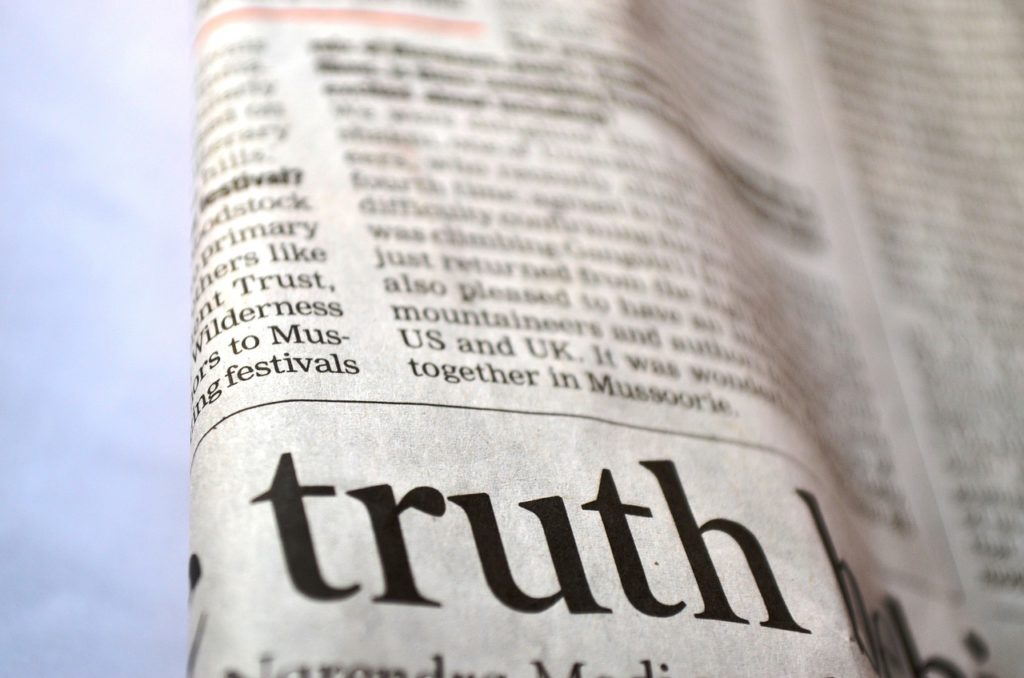The following guest post was written by Thomas Leonard, University Librarian emeritus and Professor of Journalism emeritus at UC Berkeley, and a member of the Authors Alliance board of directors. Leonard is an expert in the history of American journalism; his books include The Power of the Press: The Birth of American Political Reporting and News For All: America’s Coming of Age With the Press
Some of the most damning lines about American media are gaining new currency these days:
“Nothing can now be believed which is seen in a newspaper,” President Thomas Jefferson said in 1807. Now, slightly revised, it is a Trump line.
“Whenever his liquor begun to work, he most always went for the government”—Huck Finn’s verdict on his father may be a fair statement about many of us, dazed by our new President’s administration.
It took some hard lessons before our Constitution’s glorious words about freedom of the press were understood as a libertarian sacrament in the early Republic. The John Adams administration managed the arrest of some two dozen critics under the Alien & Sedition Acts before the Constitutional principle of a free press took its modern shape, following the realization that this could happen to anyone not holding the reins of power.
Similarly, respect for the press was not robust at the creation of American government. This value developed through political struggle. The first U.S. copyright law of 1790 provided the privilege for books, maps and charts; just how authors of newspaper and magazine stories were to protect themselves was not addressed. The first Congresses did not report their own proceedings in any detail, let alone make it easy for journalists to hear what was going on. Rights for a free press and for the citizens who would need it were built over time, and with a variety of special interests doing much of the lifting.
Consistency and purity of motives have never been common features of our civil society, particularly in our history of a free press. Self-interest has been the anchor (perhaps a better one than idealism alone), and self-interest across the political spectrum is likely to deflect the harshest threats against the press today. Until recently, Donald Trump’s most noted attack on journalists was his statement in February, 2016 about how they could be brought to heel: “We’re going to open up those libel laws. So when the New York Times writes a hit piece which is a total disgrace or when the Washington Post, which is there for other reasons, writes a hit piece, we can sue them and win money instead of having no chance of winning because they’re totally protected.”
Since taking office, the President has suffered from a case of libel nerves. Last week, he went after the New York Times with the tweet, “Change libel laws?” The question mark is significant. The Supreme Court’s New York Times v. Sullivan decision of 1964 famously protected journalists against libel actions. But it protects politicians as well when they say harsh things about other public figures. Politico reported last week that Trump is hearing that he might be sued. Office holders would surely become large contributors to law firms in an attempt to protect themselves from defamation suits (especially if they were tweeters who did not weigh every word about public figures they dislike).
“Whose Line Is It Anyway?” was a game show that many will remember fondly. It had comforting rules: “Everything’s made up and the points don’t matter.” This is amusing but wrong in every respect when applied to politics. Holding all political actors to the law, and reminding them what they have to lose in dreaming up punishments for critics, matters tremendously. The age-old dispute between people in power and a press that would bring them to account, requires all the wisdom we can summon. Authors Alliance, whose members share common values and diverse means of expression, must be ready to meet this challenge.

